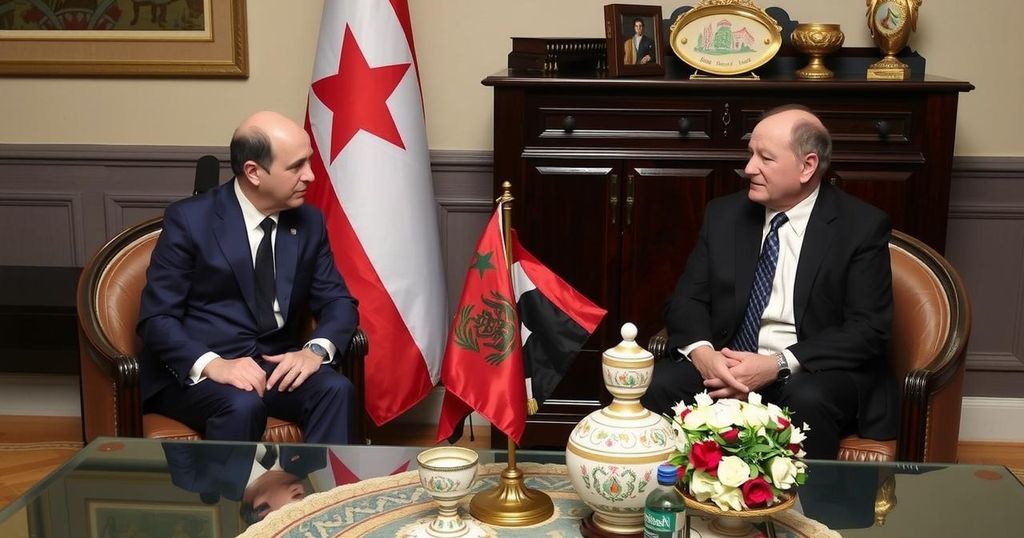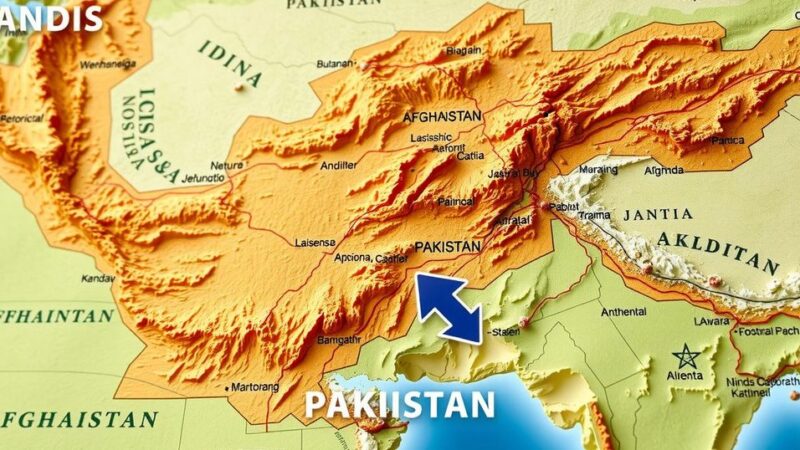Lebanon’s Prime Minister Najib Mikati met with Syria’s de facto leader Ahmed al-Sharaa in Damascus, marking the first visit by a Lebanese PM to Syria in 15 years. The leaders discussed border security, smuggling issues, and the situation of Syrian refugees in Lebanon. They agreed to establish committees to support cooperation and address these critical challenges.
In a groundbreaking development for Lebanese-Syrian relations, caretaker Prime Minister of Lebanon, Najib Mikati, engaged in discussions with Syria’s de facto leader, Ahmed al-Sharaa, during his first visit to Syria in 15 years. The two leaders convened in Damascus to address pressing bilateral issues, particularly the concerns surrounding illicit smuggling operations and the delineation of both land and maritime borders. They expressed a commitment to establish committees to tackle these critical issues collaboratively.
Throughout the conference, Al-Sharaa underscored the necessity of fostering a long-term strategic partnership with Lebanon, emphasizing the shared interests between the two nations. He acknowledged the challenges of smuggling, particularly the transportation of weapons and drugs across the porous Lebanese-Syrian border, a topic of paramount importance for Mikati. Furthermore, they deliberated on the pressing matter of Syrian refugees in Lebanon, an ongoing challenge for the Lebanese economy, which currently hosts approximately 1.5 million displaced individuals, a legacy of the Syrian civil war that erupted in 2011.
This meeting marks a significant step in re-establishing diplomatic ties after years of instability in both countries. Reflecting on this critical juncture, newly elected President of Lebanon, Joseph Aoun, indicated the importance of engaging in a constructive dialogue with Syria, which historically has wielded substantial influence over Lebanese affairs. The recent discussions signal a potential thaw in relations, opening avenues for collaboration and mutual benefit between the neighboring nations.
The meeting between the Lebanese and Syrian leaders comes against a backdrop of complex historical relations between the two countries. Following Syria’s military occupation of Lebanon for nearly three decades, tensions have simmered since Syria withdrew its troops in 2005. The recent appointment of Joseph Aoun as Lebanon’s president has sparked optimism for renewed discussions between the two countries, especially with Lebanon’s economic challenges intertwined with the presence of Syrian refugees. This meeting comes as Lebanon seeks to secure its borders and address prevailing illicit activities that have plagued the region.
In conclusion, the meeting between Lebanon’s Prime Minister Najib Mikati and Syria’s leader Ahmed al-Sharaa symbolizes a significant moment for bilateral relations, focusing on shared issues such as smuggling and the status of Syrian refugees in Lebanon. Their agreement to form committees signifies a proactive approach to addressing border challenges and fostering long-term strategic relations. However, it is crucial for both nations to navigate the complexities of their shared history as they move forward together.
Original Source: www.aljazeera.com







